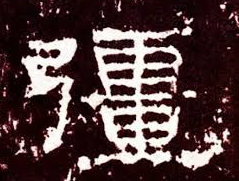Spectres & Souls
Vignettes, moments and meditations
on China and America, 1861-2021
Raffi Katchadourian approached me to translate a poem for a story that he was working on for The New Yorker. His ‘Ghost Walls: Surviving the Crackdown in Xinjiang’ appeared in the 12 April 2021 issue of the magazine.
Anar Sabit, the subject of Raffi’s harrowing account, subsequently granted China Heritage permission to reprint the full poem, with translation, which also features in the podcast version of ‘Surviving the Crackdown’ (see here).
Geremie R. Barmé
Editor, China Heritage
22 April 2021
***
Related Material:
- Ailsa Chang and Raffi Khatchadourian, ‘A Survivor’s Story Of China’s Crackdown On Ethnic Minorities In Xinjiang’, All Things Considered, NPR, 6 April 2021
- “How I survived”: Remembering Camp Days in Poems, Camp Album Project
- Spectres & Souls — Vignettes, moments and meditations on China and America, 1861-2021, China Heritage Annual 2021
- David Brophy, The Borderlands of a Brave New World — Watching China Watching (XXVIII), China Heritage, 26 June 2018
***
Ghost Walls
鬼打牆
‘The Chinese have an expression, gui da qiang, that describes “ghost walls”—invisible labyrinths, erected by phantoms, that confuse and entrap travellers.’
— Raffi Katchadourian, ‘Ghost Walls: Surviving the Crackdown in Xinjiang’
In his investigation into the situation in Xinjiang, I suggested to Raffi that he might find the Chinese concept of ‘ghost walls’ useful. Such spectral barriers have bedevilled Chinese writers and thinkers throughout modern Chinese history. Lu Xun spoke of the Great Wall of China as ‘a wonder and a curse’, and the contemporary artist Xu Bing 徐冰 created Ghosts Pounding the Wall 鬼打墙, an installation made in 1990 that reminded viewers of the ghosts wailing in the darkness. The title of Xu’s work was taken from the folk idiom gui da qiang 鬼打牆: a wall 牆 built 打 by a ghost 鬼 to entrap travellers at night. Such devilish devices so confound their victims that, no matter how hard they might try to escape, they always find themselves doomed to run in circles, forever frustrated by the invisible confines of the ghost’s wall.

***
Night Watch
值班
Anar Sabit
Translated by Geremie R. Barmé
Night again, pitch-black gloom
The searing light in this cell
Would burn through the barbed wire
To grasp freedom in outstretched hands
In an instant, darkness devours them and
That stunted poplar by the vegetable field
Trembles夜,一片漆黑
屋内的强光透出铁丝网
向自由伸去,被黑夜吞噬
菜地边那棵枯小的白杨树
颤抖着凌弱的身躯Night watch
Imposed alertness at an appointed hour
The only companions an unforgiving glare
And the fitful sounds of resentful sleep
Tormenting me, inflaming febrile nervesNight watch
The stirrings of wakeful women,
Inmates, interrupt
My silent reveries for liberty每晚如期而至的值班
伴随强光下幽怨的入睡声
折磨我每根脆弱的神经
偶有姐妹们起夜的动静
打断我思念自由的思绪Night watch
Pungent odors, abuse and threats
— the common fare of our lives.
But it’s these relentless nights that
Most gnaw away at faith and hope尿液味
和责骂,恐吓
早如家常便饭
唯有这漫长漆黑的夜
啃噬我们的信念和希望Night watch
The barbed wire can’t keep out the chill wind that
Flicks through the Chinese language textbook
To reveal a confession,
Mocking evidence of impotent submission一阵凉风穿透铁丝网
吹响了几页国语课本
那张夹在当中的悔过书
在嘲笑我们的懦弱和屈服Night watch
I turn towards the darkness and
Its wanton torment
Of the feeble poplar我把头转向黑夜
任凭它继续无肆地
凌虐那棵小白杨

